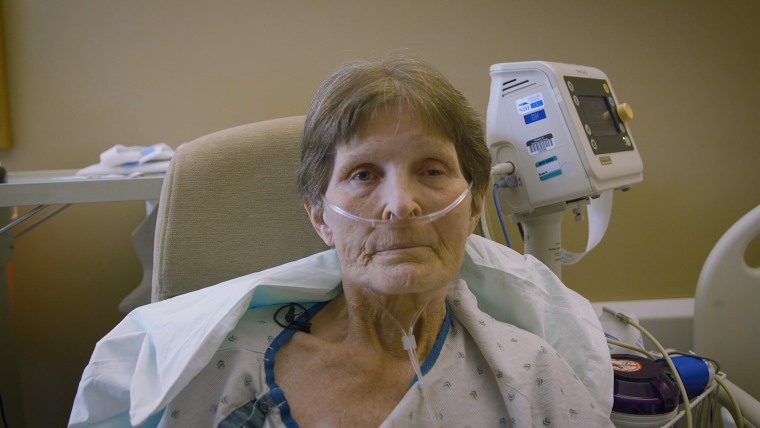 |
San
Antonio lawyer Philip Martin Ross represented a woman who didn’t have
the capacity to execute legal documents, according the petition in
Commission for Lawyer Discipline v. Ross.
|
LIT COMMENTARY
Published; 21 Dec., 2019
Maverick lawyer, Phil Ross, known for his combative style has been sued by the State Bar of Texas over a grievance filed against him alleging among other things, dishonesty.Photo Credits: Carlos Javier Sanchez / Contributor / San Antonio Express News
Below is the Synopsis of the Case that Made Ross, well, Infamous…
Published; Dec. 20, 2019
A Texas judge has ordered a lawyer and his clients to pay more
than $220,000 in sanctions for an alleged “vexatious litigation
campaign” against a mentally incapacitated millionaire and his
guardians.
Judge Oscar Kazen imposed the sanctions against lawyer Phil Ross and his clients in a May 24 decision, the San Antonio Express-News reports.
Ross misrepresented himself as the lawyer for 81-year-old Charlie Thrash, the mentally incapacitated millionaire, and assisted in Thrash’s marriage and adoption of his new wife’s adult children, Kazen said in his opinion. Thrash’s marriage to Laura Martinez, who was Ross’ client, was annulled and the adoptions were undone, according to the Express-News.
Thrash is the former owner of a specialty auto repair shop whose estate is valued at more than $3 million. Martinez has been involved with Thrash since 2012, the article reports. A court-appointed psychiatrist had found Thrash to be mentally incapacitated in 2017 after an anonymous complaint was filed to Adult Protective Services.
Ross also appeared before a justice of the peace with Martinez and one of her daughters, Brittany, to assert rights under a lease. After being confronted by lawyers for Thrash, Ross admitted the lease was “reconstructed from memory,” according to Kazen.
Judge Oscar Kazen imposed the sanctions against lawyer Phil Ross and his clients in a May 24 decision, the San Antonio Express-News reports.
Ross misrepresented himself as the lawyer for 81-year-old Charlie Thrash, the mentally incapacitated millionaire, and assisted in Thrash’s marriage and adoption of his new wife’s adult children, Kazen said in his opinion. Thrash’s marriage to Laura Martinez, who was Ross’ client, was annulled and the adoptions were undone, according to the Express-News.
Thrash is the former owner of a specialty auto repair shop whose estate is valued at more than $3 million. Martinez has been involved with Thrash since 2012, the article reports. A court-appointed psychiatrist had found Thrash to be mentally incapacitated in 2017 after an anonymous complaint was filed to Adult Protective Services.
A court investigator concluded earlier this year that Thrash didn’t want to marry Martinez and she was isolating him from friends.Thrash did not have legal capacity to marry, and Ross and Martinez were aware of the January order finding that Thrash was incompetent at the time of the marriage, Kazen said in his opinion.
Ross served as best man at the March wedding, held in another county, and he signed the marriage certificate. The lawyer also signed and filed an application for spousal support on behalf of Martinez.Ross also signed and filed an adoption petition in March that asserted Ross was Thrash’s lawyer, Kazen said. Ross did not disclose the incapacity order during adoption proceedings before a different judge, Kazen said.
Ross also appeared before a justice of the peace with Martinez and one of her daughters, Brittany, to assert rights under a lease. After being confronted by lawyers for Thrash, Ross admitted the lease was “reconstructed from memory,” according to Kazen.
Martinez and Ross also went to a Social Security office to get
checks for Thrash redirected to Ross at his residence, Kazen said.
Ross says Thrash has regained his mental competence, and he is appealing the January 2019 order finding him to be totally incapacitated. He has filed more than 70 pleadings in a bid to oust the guardians and obtain Kazen’s recusal. He has also filed separate suits against Kazen in state court, against the two guardians in federal court and against the guardians in state court, according to the Express-News.
Kazen imposed a joint and several sanction of about $187,500 on Ross, Laura Martinez and Brittany Martinez, payable to Trash’s estate and his guardians to cover attorney fees. He also ordered Ross to pay a sanction of about $30,400 for attorney fees and a punitive sanction of $5,000. The judge ordered Laura Martinez to pay a $2,500 punitive sanction and ordered Brittany Martinez to pay a $1,500 punitive sanction.
Kazen also said he would impose a sanction of $30,000 in the event of an unsuccessful appeal of the sanctions order to the Texas Court of Appeals and $50,000 for an unsuccessful appeal of the order to the Texas Supreme Court.
As an additional sanction, Kazen barred Laura Martinez from pursuing any claim that she is or ever was Thrash’s wife, either through a ceremonial or common law marriage.
Kazen previously issued a temporary restraining order requiring the Martinez family to leave Thrash’s home. Thrash has been moved to a relative’s home and has caregivers watching him around the clock, one of Thrash’s guardians told the Express-News.
Ross told the News-Express that he hasn’t harmed Thrash and the sanctions raise more questions about the case. He says he is representing his clients pro bono.
“How did the judge allow the guardians’ lawyers to bill more than a quarter-million dollars to Charlie’s estate trying to stop his common law wife Laura and Brittany from trying to help him restore his capacity and to remove the guardians?” he said in a News-Express interview.
“The other question is why are they so afraid of us? They are trying to silence us. All we’re saying is that Charlie is not incapacitated and the guardians should be removed,” he said.
Ross says Thrash has regained his mental competence, and he is appealing the January 2019 order finding him to be totally incapacitated. He has filed more than 70 pleadings in a bid to oust the guardians and obtain Kazen’s recusal. He has also filed separate suits against Kazen in state court, against the two guardians in federal court and against the guardians in state court, according to the Express-News.
Kazen imposed a joint and several sanction of about $187,500 on Ross, Laura Martinez and Brittany Martinez, payable to Trash’s estate and his guardians to cover attorney fees. He also ordered Ross to pay a sanction of about $30,400 for attorney fees and a punitive sanction of $5,000. The judge ordered Laura Martinez to pay a $2,500 punitive sanction and ordered Brittany Martinez to pay a $1,500 punitive sanction.
Kazen also said he would impose a sanction of $30,000 in the event of an unsuccessful appeal of the sanctions order to the Texas Court of Appeals and $50,000 for an unsuccessful appeal of the order to the Texas Supreme Court.
As an additional sanction, Kazen barred Laura Martinez from pursuing any claim that she is or ever was Thrash’s wife, either through a ceremonial or common law marriage.
Kazen previously issued a temporary restraining order requiring the Martinez family to leave Thrash’s home. Thrash has been moved to a relative’s home and has caregivers watching him around the clock, one of Thrash’s guardians told the Express-News.
Ross told the News-Express that he hasn’t harmed Thrash and the sanctions raise more questions about the case. He says he is representing his clients pro bono.
“How did the judge allow the guardians’ lawyers to bill more than a quarter-million dollars to Charlie’s estate trying to stop his common law wife Laura and Brittany from trying to help him restore his capacity and to remove the guardians?” he said in a News-Express interview.
“The other question is why are they so afraid of us? They are trying to silence us. All we’re saying is that Charlie is not incapacitated and the guardians should be removed,” he said.
Full Article & Source:
San Antonio Attorney Phil Ross Thrashed in Court, Now Facing The Texas Commission for Lawyer Discipline, But He’s Not Worried About a Slap



















